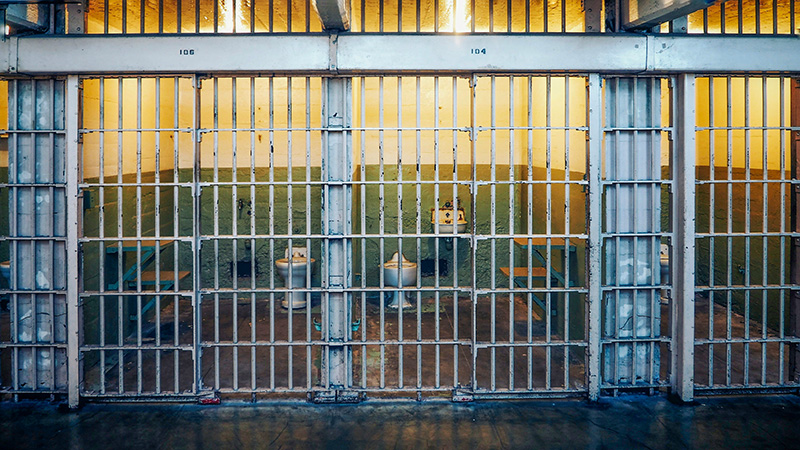Mormon Church says it opposes conversion therapy, but is concerned about rule to limit it
Governor Gary Herbert says clarifying language to protect religious advisers could be added to allay church's concerns

The Church of Jesus Christ of Latter-day Saints is seeking to clarify its position on conversion therapy, saying it opposes the practice, but is concerned about a lack of protections for parents and religious leaders in a proposed rule that would effectively ban the practice.
The proposed rule, which was crafted by medical and mental health experts, is being considered by the Utah Department of Professional Licensing. Under the rule, attempts to change the sexual orientation or gender identity of a person would be classified as a form of “unprofessional conduct” that could put therapists at risk of losing their license or having it suspended.
Decrying what he called “inaccurate” news headlines, Marty Stephens, the LDS church’s director of government and community relations, reiterated the faith’s opposition to conversion therapy, noting that it has held that same position going back to 2016, when it publicly denounced the practice of conversion therapy.
“The Church of Jesus Christ of Latter-day Saints opposes conversion therapy, and our therapists do not practice it,” he said, according to the Deseret News.
But Stephens also said the church will continue to oppose the proposed rule unless changes are made to provide to explicitly carve out certain exemptions for therapists who are parents, grandparents, or religious leaders who are acting in their capacity as religious advisers.
While most bills to ban conversion therapy — including a version, known as HB399, that was introduced earlier this year in the Utah Legislature but ultimately failed — contain such exemptions, targeting only those therapists who purport to be acting in a professional capacity, and despite any lack of evidence that the proposed rule would target people acting in a personal or religious capacity, Stephens insists that explicit protections are needed.
“If a client comes in and says, ‘I identify with this religion and I want to try and have my treatment reflect that,’ ‘I want to abstain from premarital sex’ or ‘I want to abstain from extramarital sex, because that’s part of my religious beliefs,’ under HB399 counselors could counsel to that,” Stephens said. “Under the [DOPL] rule, they cannot.”
If it is the case that the DOPL rule would not be used to threaten the licenses of counselors or therapists acting as religious advisers in a personal setting, Stephens says, then “put the exception in the rule so it is clear.”
Utah State Rep. Craig Hall (R-West Valley City), the sponsor of HB399, said in a statement posted to Twitter that the proposed rule is similar to the bill he introduced, which the LDS church notably did not oppose. Hall encouraged DOPL to adopt the rule and begin implementing it.
Utah Gov. Gary Herbert, a Republican, previously called for DOPL to issue a rule on conversion therapy “based on science” after legislative efforts fell short. But he said, that the LDS church had a right to weigh in on the bill and believes that its concerns about explicit exemptions “can be addressed,” according to FOX13.
“There might be some clarifying language needed to make sure that people are not jumping to unwarranted conclusions,” he said. “Let’s just wait for the process to finish.”
While DOPL would potentially implement the proposed rule as soon as Tuesday, it has up to 120 days to make a final determination, according to spokeswoman Jennifer Bolton.
LGBTQ advocates have long sought to ban conversion therapy in the state, pointing to studies showing that those subjected to conversion therapy are more likely to experience negative mental health outcomes.
Taryn Hiatt of the American Foundation for Suicide Prevention’s Utah chapter, told FOX13 that, according to statistics provided to her by DOPL, only 6% of 2,457 commenters who weighed in on the proposed rule during its public comment period opposed a ban on conversion therapy.
But the Utah Department of Commerce, which oversees DOPL, has said it will not release a breakdown of the comments for public consumption.
Nonetheless, Hiatt said, the overwhelming response in favor of a ban “tells me that people are understating what it we’re trying to do, and this language will protect youth from harmful forms of conversion therapy.”
Read more:
Indiana Catholic school fires straight social worker who supported fired lesbian colleagues
Pete Buttigieg responds to Tennessee Republican who called him a “queer”
Support Metro Weekly’s Journalism
These are challenging times for news organizations. And yet it’s crucial we stay active and provide vital resources and information to both our local readers and the world. So won’t you please take a moment and consider supporting Metro Weekly with a membership? For as little as $5 a month, you can help ensure Metro Weekly magazine and MetroWeekly.com remain free, viable resources as we provide the best, most diverse, culturally-resonant LGBTQ coverage in both the D.C. region and around the world. Memberships come with exclusive perks and discounts, your own personal digital delivery of each week’s magazine (and an archive), access to our Member's Lounge when it launches this fall, and exclusive members-only items like Metro Weekly Membership Mugs and Tote Bags! Check out all our membership levels here and please join us today!



























You must be logged in to post a comment.